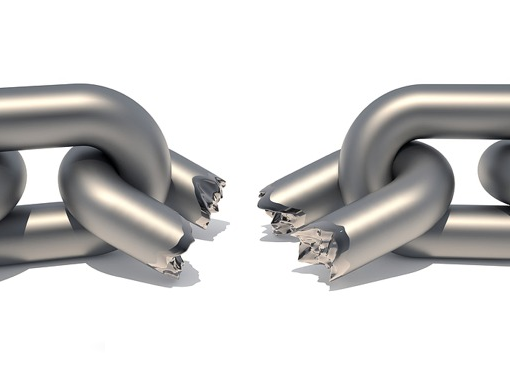Links – the so-called skeleton of the Internet. They connect the billions of documents found on the world wide web. These documents are not just web pages – they can be individual images, text documents, music files, and any other types of information. With the development of the Internet, increasingly on the Internet began to appear the term "broken link".
By itself, the broken link is a link pointing to a nonexistent location in the network, be it a website, an individual page or specific file. If the entire Internet to compare with a map of the city, then the broken link can be represented in the form of a non-existent house number on the map. That is, the map house is, but in real life it is not.
In technical words, the reference is a uniform resource locator (from the English. URL – Uniform Resource Locator). And if this resource does not exist, then the link is called a bat.
Reasons why broken links appear in the network, several. Among the most common – the obsolescence of information, technical failure or human factor.
The Internet as a huge living organism that is constantly alive and growing. The page that existed yesterday, today it may be remote. The reasons are many: the page has decided for one reason or another to remove; the website could change its structure in such a way that the page to which the link leads, changed its address and is no longer available at the previous link. In the end, the site could simply cease to exist, and references to it – to stay.
Under the technical failure means incorrect to publish links to, for example, on the forum. Some forums shorten long links and there are cases when a user tries to post a correct, working link, and the result is broken.
Finally, the human factor – when the user at the time the link gains it manually instead of copy. In the case of typos, it turns out broken link leading to a nonexistent website. By the way, there are people who are using special software to crawl the web for the presence of such links that lead to other domains, with a view to their subsequent registration.
Search engines such as Google, crawl the web with the aid of references, so if you are a website owner, you should ensure that your website does not have broken links. Broken links are "nowhere" and a large number of such links on the site may result in some sanctions from the search engines, such as demotion in search results for various queries.
By itself, the broken link is a link pointing to a nonexistent location in the network, be it a website, an individual page or specific file. If the entire Internet to compare with a map of the city, then the broken link can be represented in the form of a non-existent house number on the map. That is, the map house is, but in real life it is not.
In technical words, the reference is a uniform resource locator (from the English. URL – Uniform Resource Locator). And if this resource does not exist, then the link is called a bat.
Where are the broken links?
Reasons why broken links appear in the network, several. Among the most common – the obsolescence of information, technical failure or human factor.
The Internet as a huge living organism that is constantly alive and growing. The page that existed yesterday, today it may be remote. The reasons are many: the page has decided for one reason or another to remove; the website could change its structure in such a way that the page to which the link leads, changed its address and is no longer available at the previous link. In the end, the site could simply cease to exist, and references to it – to stay.
Under the technical failure means incorrect to publish links to, for example, on the forum. Some forums shorten long links and there are cases when a user tries to post a correct, working link, and the result is broken.
Finally, the human factor – when the user at the time the link gains it manually instead of copy. In the case of typos, it turns out broken link leading to a nonexistent website. By the way, there are people who are using special software to crawl the web for the presence of such links that lead to other domains, with a view to their subsequent registration.
Broken links and search engines
Search engines such as Google, crawl the web with the aid of references, so if you are a website owner, you should ensure that your website does not have broken links. Broken links are "nowhere" and a large number of such links on the site may result in some sanctions from the search engines, such as demotion in search results for various queries.
